Владимир Маяковский. "Chemin de fer", 1915.
To His Own Beloved Self The Author Dedicates These Lines
Six.Ponderous. The chimes of a clock.
"Render unto Ceasar... render unto God..."
But where's
someone like me to dock?
Where to find waiting - a lair?
Were I
like the ocean of ocean little,
on the tiptoes of waves I'd rise,
I'd strain, a tide, to caress the moon.
Where to find someone to love
of my size,
the sky too small for her to fit in?
Were I poor
as a multimillionaire,
it'd still be tough.
What's money for the soul? --
Theif insatiable.
The gold
of all Californias isn't enough
for my desires' riotous horde.
I wish I were tongue-tied,
like Dante
or Petrarch,
able to fire a woman's heart,
reduce it to ashes with verse-filled pages!
My words
and my love
form a triumphal arch:
through it in all their splendour,
leaving no trace,will pass
the inamoratas of all the ages.
Were I
As quiet as thunder,
how I'd wail and whine!
One groan of mine
would start world's crumbling cloister shivering.
And if
I'd end up by roaring
with all of its power of lungs and more -
the comets, distressed, would wring their hands
and from the sky's roof leap in fever.
If I were dim as the sun,
night I'd drill
with the rays of my eyes,
and also
all by my lonesome,
radiant self
build up the earth's shivering bosom.
On I'll pass,
dragging my huge love behind me.
On what feverish night, deliria-ridden,
by what Goliaths was I begot -
I, so big
and so no one needen?
Translated by I.Zheleznova
_____________________________________________Себе, любимому, посвящает эти строки автор
Четыре.Тяжелые, как удар.
"Кесарево кесарю - богу богово".
А такому,
как я,
ткнуться куда?
Где мне уготовано логово?
Если бы я был
Маленький,
как океан, -
на цыпочки волн встал,
приливом ласкался к луне бы.
Где любимую найти мне,
Такую, как и я?
Такая не уместилась бы в крохотное небо!
О, если б я нищ был!
Как миллиардер!
Что деньги душе?
Ненасытный вор в ней.
Моих желаний разнузданной орде
не хватит золота всех Калифорний.
Если б быть мне крсноязычным,
как Данте
или Петрарка!
Душу к одной зажечь!
Стихами велеть истлеть ей!
И слова
и любовь моя --
триумфальная арка:
пышно,
бесследно пройдут сквозь нее
любовницы всех столетий.
О, если б был я
тихий,
как гром, -
ныл бы,
дрожью объял бы земли одряхлевший скит.
Я если всей его мощью
выреву голос огромный, --
кометы заломят горящие руки,
бросаясь вниз с тоски.
Я бы глаз лучами грыз ночи -
о, если б был я
тусклый, как солце!
Очень мне надо
сияньем моим поить
земли отощавшее лонце!
Пройду,
любовищу мою волоча.
В какой ночи'
бредово'й,
недужной
какими Голиафами я зача'т -
такой большой
и такой ненужный?
1916
Владимир Маяковский. "Жираф и пальмы", 1913.
Listen!
Listen,if stars are lit
it means - there is someone who needs it.
It means - someone wants them to be,
that someone deems those specks of spit
magnificent.
And overwrought,
in the swirls of afternoon dust,
he bursts in on God,
afraid he might be already late.
In tears,
he kisses God's sinewy hand
and begs him to guarantee
that there will definitely be a star.
He swears
he won't be able to stand that starless ordeal.
Later,
He wanders around, worried,
but outwardly calm.
And to everyone else, he says:
'Now,
it's all right.
You are no longer afraid,
are you?'
Listen,
if stars are lit,
it means - there is someone who needs it.
It means it is essential
that every evening
at least one star should ascend
over the crest of the building.
______________________________________
Послушайте!
Послушайте!Ведь, если звезды зажигают -
значит - это кому-нибудь нужно?
Значит - кто-то хочет, чтобы они были?
Значит - кто-то называет эти плевочки
жемчужиной?
И, надрываясь
в метелях полуденной пыли,
врывается к богу,
боится, что опоздал,
плачет,
целует ему жилистую руку,
просит -
чтоб обязательно была звезда! -
клянется -
не перенесет эту беззвездную муку!
А после
ходит тревожный,
но спокойный наружно.
Говорит кому-то:
"Ведь теперь тебе ничего?
Не страшно?
Да?!"
Послушайте!
Ведь, если звезды
зажигают -
значит - это кому-нибудь нужно?
Значит - это необходимо,
чтобы каждый вечер
над крышами
загоралась хоть одна звезда?!
1914
But Could You?
I blurred at once the map of humdrum,by splashing colours like a potion;
I showed upon the dish of jelly
the slanted cheekbones of the ocean.
Upon the scales of metal fishes
I read the new lips’ attitude.
But could you
now
perform a nocturne
Just playing on a drainpipe flute?
Translated by Dmitri Smirnov (D. Smirnov-Sadovsky)
_______________________________А вы могли бы?
Я сразу смазал карту будня,плеснувши краску из стакана;
я показал на блюде студня
косые скулы океана.
На чешуе жестяной рыбы
прочел я зовы новых губ.
А вы
ноктюрн сыграть
могли бы
на флейте водосточных труб?
1913
Маяковский в мастерской РОСТА. 1941.
Художник А. Дейнека
THE PARISIAN WOMAN
What is your idea
of a Parisian woman?
A jeweled beauty
with a gemmed hand?
Don't try to fancy!
Life is more gloomy!
The Parisian I know
is nothing of the kind.
I don't know
whether she is old
or young,
In a gloss of finery
impaired by wear
She works
at the toilet of a restaurant
A little restaurant
called
Grande Chamiere.
After having a drop
one may have a desire
To refresh oneself
by taking the air.
The woman"s job
is to help with a towel,
And she is a conjurer
in this affair.
You sit at the mirror
in the toilet-room
Watching your pimples
while she,
with a smile,
Will powder your face
and put some perfume,
Wipe up the pool
and give you a towel.
To please the gluttons
she sticks around
In the somber lavatory
all day long.
For fifty centimes!
(Which is around
Four kopecks
for every good turn).
I go to the washstand
to wash my hands
Inhaling the marvel
of perfumery smell,
Her wretched plainness
puzzling my fancy
I want to say
to the mademoiselle:
Your appearance
is far from being pleasing.
Why should you spent your life
in a toilet?
I must have thought
too much
of Parisians
Or
you are not
a Parisian at all.
Your manners are languid
and you look unhealthy.
The stockings you wear
aren't silk but plain.
Why don't
the moneyed messieurs
present you
With bunches of violets
now and then?
She didn't reply.
The air being rent
By a loud street noise
falling
on us
That was the noise
of the carnival merriment
Of young Parisians
in Monte Parnasse.
I am sorry
for a rigorous poem like this,
For having mentioned
a dirty pool,
But it's hard
for a woman to live
in Paris
If she has to work, -
not to sell her soul.
Перевод Алика Вагапова
_____________________________________
ПАРИЖАНКА
Вы себе представляете
парижских женщин
с шеей разжемчуженной,
разбриллиантенной рукой...
Бросьте представлять себе!
Жизнь - жестче -
у моей парижанки
вид
другой.
Не знаю,
право,
молода или стара она,
До желтизны
Отшлифованная
в лощенном хамье.
Служит она
в уборной ресторана -
маленького ресторана
"Гранд-Шомьер".
Выпившего бургундского
может захотеться
для облегчения
пойти пройтись.
Дело мадмуазель -
подавать полотенце,
она в этом деле
просто
артист.
Пока у трюмо
разглядываешь
прыщик,
Она
разулыбив облупленный рот,
пудрой попудрит,
духами попрыщет,
подаст пипифакс
и лужу подотрет.
Раба чревоугодий
торчит без солнца,
в клозетной шахте
по суткам
клопея,
за пятьдесят сантимов
(по курсу червонца
с мужчины около
четырех копеек).
Под умывальником
ладони омывая
дыша диковиной
парфюмерных зелий,
над мадмуазелью недоумевая,
хочу сказать
мадмуазели :
- Мадмуазель,
Ваш вид,
извините, жалок.
На уборную
молодость губить
не жалко Вам?
Или мне наврали
про парижанок,
или Вы,
мадмуазель,
не парижанка.
Выглядите Вы туберкулезно и вяло,
Чулки шерстяные... Почему не шелка?
Почему не шлют Вам пармских фиалок
благородные мусью от полного кошелька? -
Мадмуазель молчала,
грохот
наваливал
на трактир,
на потолок,
на нас.
Это,
кружа веселье
карнавалово,
весь в парижанках
гудел Монпарнас.
Простите, пожалуйста,
за стих
раскрежещенный
и за описанные
вонючие лужи,
но очень трудно
в Париже
женщине,
если женщина
не продается,
а служит.
Шарж на И. Репина. Рисунок В. Маяковского. 1915
BEAUTIES
( Meditation on the opening of Opera House)
Slipped into dinner jacket,perfectly shaved,
I am
at Opera House,
like a grandee.
During the interval
I see
a lot of beauties. Great!
My disposition melted,
I like it here,
really.
The waists
are cups,
The nails
are glossy,
The painted lips,
are Houbigant rosy.
The retouch
shadows
the blue of the eyes,
the backs are
the blossom of salmon,
so nice.
Dropping
from height,
the trains
sweep
the floor.
Keep off, poets,
such beauty,
for you it"s a bore.
As she turns her rear
you"ll see diamonds in her ear.
As she playfully stirs,
on the breast
chinchilla
reveals
white purls.
The dress
is like fluff.
You won"t breathe, I bet.
Even old walrus
is seen
dressed up in faille
and crêpe de Chine.
Only the cloud
is crêpe Georgette.
The brooches glitter ...
now there you are! -
from half-naked dress
you get.
But it would be best
if, along with the dress,
she had also
a head.
Перевод Алика Вагапова
КРАСАВИЦЫ
(Раздумье на открытии Grand Opera)
В смокинг вштопорен,побрит что надо.
По гранд
по опере
гуляю грандом.
Смотрю
в антракте -
красавка на красавице.
Размяк характер -
все мне
нравится.
Талии -
кубки.
Ногти -
в глянце.
Крашеные губки
розой убиганятся.
Ретушь -
у глаза.
Оттеняет синь его.
Спины
из газа
цвета лососиньего.
Упадая
с высоты,
пол
метут
шлейфы.
От такой
красоты
сторонитесь, рефы.
Повернет -
в брильянтах уши.
Пошевелится шаля -
на грудинке
ряд жемчужин
обнажают
шиншиля.
Платье -
пухом.
Не дыши.
Аж на старом
на морже
только фай
да крепдешин,
только
облако жоржет.
Брошки - блещут...
на тебе!-
с платья
с полуголого.
Эх,
к такому платью бы
да еще бы...
голову.
1929
«Окно сатиры Чукроста». Запись В. Маяковского в рукописном альманахе К. Чуковского «Чукоккала». 1920
BUILD THE MATERIAL BASE!
Let poets grumble,and splutter playing pipers,
And let them curl their lips
like vipers.
With a pure heart,
I shout
about
What socialism can"t do without.
"The floor I live on
doesn"t matter, I should say, -
conveniences
is what I need.
I want, dear comrades,
to live the way
the bourgeois
and masters did.
I"m not a thrush for you,
comrades,
nor a tit,
I have got
things to do,
a whole mass.
I want to rise
high up in life, indeed,
as it befits
the ruling class.
I come from lowest class,
I"ve had enough.
I hate
to beg in dirt,
like all of us.
Comrades, I"d rather live
high up above,
right by the side of
Solar
Prominence.
We are neither horses,
comrades,
nor children, really,
Riding a horse
with load,
you said?!
In short, -
you"d better firstly,
secondly
and thirdly, -
provide me
with a lift instead.
Instead of lift,
somehow I"ve got
to hop and jump -
they"d better wait!
On the white wall
somebody wrote
In scrawls: " The lift
WON"T
operate!"
Likewise,
a lot of thing
are just disgusting.
Say, primus stoves!
Make way to gas!
And after work
get washed
at once.
Run, lift,
run, master of deception!
Let's build
material base,
taking a chance,
for brand-new
socialist relations".
Let poets grumble,
and splutter playing pipers,
And let them curl their lips
like vipers.
With a pure heart,
I shout
about
What socialism
can"t do without.
Translated from the Russian by Alec Vagapov
________________________________________________________
Чуковский в новой шляпе. Рисунок В. Маяковского. Москва. 1915
ДАЁШЬ МАТЕРИАЛЬНУЮ БАЗУ!
Пусть ропщут поэты,слюною плеща,
губою
презрение вызмеив.
Я,
душу не снизив,
кричу о вещах,
обязательных при социализме.
"Мне, товарищи,
этажи не в этажи -
мне
удобства подай.
Мне, товарищи,
хочется жить
не хуже,
чем жили господа.
Я вам, товарищи,
не дрозд
и не синица,
мне
и без этого
делов массу.
Я, товарищи,
хочу возноситься,
как подобает
господствующему классу.
Я, товарищи,
из нищих вышел,
мне
надоело
в грязи побираться.
Мне бы, товарищи,
жить повыше,
у самых
солнечных
протуберанцев.
Мы, товарищи,
не лошади
и не дети -
скакать
на шестой,
поклажу взвалив?!
Словом, -
во-первых,
во-вторых,
и в-третьих, -
мне
подавайте лифт.
А вместо этого лифта
мне -
прыгать -
работа трехпотая!
Черным углем
на белой стене
выведено криво:
"Лифт
НЕ
работает".
Вот так же
и многое
противно глазу. -
Примуса, например?!
Дорогу газу!
Поработав,
желаю
помыться сразу.
Бегай -
лифт мошенник!
Словом,
давайте
материальную базу
для новых
социалистических отношений".
Пусть ропщут поэты,
слюною плеща,
губою
презрение вызмеив.
Я,
душу не снизив,
кричу о вещах,
обязательных
при социализме.
1929
То Comrade Nette, the Man and The Ship
I startled. Then I saw that it was not a dream.Nor was it the fancy of a poet.
The "Theodor Nette" turned about to steam
Into the port.
I have recognized him. He arrived
Wearing round spectacles of safety buoys.
Hello, Nette! I'm so glad that you're alive,
A smoky life of funnels, hooks and coils.
Now come here. How's everything?
You must have traveled, boiling, very far...
You remember, when a human being,
Having tea with me in a sleeping car?
People snored while you sat up till morn.
Squinting at the sealing-wax with half closed eyes.
You would talk about Rommie Yakobson
And amuse yourself by learning rhymes.
You'd fall asleep at dawn, revolver at the ready.
Was there anybody going to pry?
Could I think that in a year's time already
As a ship you would appear to my eye ?
Big and bright is the moon that shines in your rear,
The vast is divided in two by its light.
As if you were dragging the trace of a hero
From the scene of a severe naval fight.
We don't believe in communism from the books we read
There is a lot of rubbish in them as a rule.
But this is something that turns all "fibs" to real
And reveals the gist of the idea to the full.
We are living bound by an iron oath,
And we might as well be hanged and crushed
For we want this world to be a common earth
Without Latvias and without Russias.
We have blood, not water flowing in our body.
We are marching through the pistol din
So that consequently we might be embodied
In a ship, a poem or some other lasting thing.
I would go on living following my bent.
And the only wish that I would dare venture
Is that I could meet my latter end
Just like comrade Nette met his last adventure.
Translated from the Russian by Alec Vagapov
_________________________________________________________Товарищу Нетте, пароходу и человеку
Я недаром вздрогнул. He загробный вздор.
В порт, горящий как расплавленное лето,
разворачивался и входил товарищ "Теодор
Нетте".
Это -- он. Я узнаю его.
В блюдечках-очках спасательных кругов.
-- Здравствуй, Нетте! Как я рад, что ты живой
дымной жизнью труб, канатов и крюков.
Подойди сюда! Тебе не мелко?
От Батума, чай, котлами покипел...
Помнишь, Нетте, -- в бытность человеком
ты пивал чаи со мною в дип-купе?
Медлил ты. Захрапывали сони.
Глаз кося в печати сургуча,
напролет болтал о Ромке Якобсоне
и смешно потел, стихи уча.
Засыпал к утру. Курок аж палец свел...
Суньтеся -- кому охота!
Думал ли, что через год всего
встречусь я с тобою -- с пароходом.
За кормой луниша. Ну и здорово!
Залегла, просторы надвое прорвав.
Будто навек за собой из битвы коридоровой
тянешь след героя, светел и кровав.
В коммунизм из книжки верят средне.
"Мало ли что можно в книжке намолоть!"
А такое -- оживит внезапно "бредни"
и покажет коммунизма естество и плоть.
Мы живем, зажатые железной клятвой.
За нее -- на крест, и пулею чешите:
это -- чтобы в мире без Россий, без Латвий,
жить единым человечьим обшежитьем.
В наших жилах -- кровь, а не водица.
Мы идем сквозь револьверный лай,
чтобы, умирая, воплотиться
в пароходы, в строчки и в другие долгие дела.
Мне бы жить и жить, сквозь годы мчась.
Но в конце хочу -- других желаний нету --
встретить я хочу мой смертный час
так, как встретил смерть товарищ Нетте.
1926
LEFT MARCH
About turn! March!Away with a talk-show.
Silence, you speakers!
Comrade mauser,
you
have the floor.
Down with the law which for us
Adam and Eve have left.
We'll ruin the jade of the past.
Left!
Left!
Left!
Hey, bluejackets!
Be gone!
Sail away! Overseas!
Or is there anything wrong
with the keels
of your battleships?
May
the vigorous British Lion
Keep howling, frenzied and chafed.
The commune shall not resign.
Left!
Left!
Left!
There
o'er the hills of sorrow
There's a land of the rising sun...
For hunger,
for the sea of horror,
millions, march one by one!
May them gang up against us,
To all their threats we"ll be deaf,
The Entente shall never suppress us.
Left!
Left!
Left!
Can the eagle ever get blind?
Can they make us swing off the road?
Hold
your proletarian hand
tight on the world's throat!
Deck out the sky with drape!
March boldly ahead , don"t be late!
Who's marching out of step?
Left!
Left!
Left!
Translated from the Russian by Alec Vagapov
_____________________________________________ЛЕВЫЙ МАРШ
Разворачивайтесь в марше!Словесной не место кляузе.
Тише, ораторы!
Ваше
слово,
товарищ маузер.
Довольно жить законом,
данным Адамом и Евой.
Клячу истории загоним.
Левой!
Левой!
Левой!
Маяковский и Родченко
Эй, синеблузые!
Рейте!
За океаны!
Или
у броненосцев на рейде
ступлены острые кили?!
Пусть,
оскалясь короной,
вздымает британский лев вой.
Коммуне не быть покоренной.
Левой!
Левой!
Левой!
Маяковский и Родченко
Там
за горами горя
солнечный край непочатый.
За голод
за мора море
шаг миллионов печатай!
Пусть бандой окружат нанятой,
стальной изливаются леевой, -
России не быть под Антантой.
Левой!
Левой!
Левой!
Глаз ли померкнет орлий?
В старое станем ли пятиться?
Крепи
у мира на горле
пролетариата пальцы!
Грудью вперед бравой!
Флагами небо оклеивай!
Кто там шагает правой?
Левой!
Левой!
Левой!
Джимми Шмидт. Рисунок В. Маяковского. Куоккала. 1915
The Poem of the Soviet Passport
I'd root outbureaucracy
once and for ever.
I have no respect
for formalities.
May every paper
go to the devil
But for this...
A courteous official
passes through
The maze of compartments
and halls.
They hand in passports,
And I,
too,
Hand in
my red-skinned pass.
Some passports
arouse an obliging smile
While others
are treated as mud.
Say, passports
picturing
the British Lion
Are taken
with special regard.
A burly guy
from the USA
Is met
with an exorbitant honor,
They take his passport
as if they
Were taking
a gift of money.
The Polish passport
makes them stare
Like a sheep might stare
at a Christmas tree:
Where does it come from,
this silly and queer
Geographical
discovery?
Without trying
to use their brains,
Entirely dead
to all feelings,
They take
quite coldly
passports from Danes
And other sorts of
aliens.
Suddenly,
as if he had burnt
his mouth,
The official
stood
stock-still:
It's my red passport
fall this bound
Into the hands
of his majesty.
He takes my pass,
as if it were
A bomb,
a blade
or those sorts of things,
He takes it
with extraordinary
caution and scare
As if it were a snake
with dozens of stings.
The porter
meaningly
bats his eyes
Ready to serve me
for free.
The detective
looks at the cop
in surprise,
The cop
looks at him
inquiringly.
I know
I'd be fiercely slashed and hanged
By this
gendarmerie caste
Only because
I have got in my hand
This
hammer-and-sickle pass.
I'd root out bureaucracy
once and for ever.
I have no respect
for formalities.
May every paper
go to the devil
But for this...
This little thing,
so dear to me,
I withdraw
from my loose pantaloons,
Read it and envy me:
I happen to be
A citizen
of the Soviet Union.
Translated from the Russian by Alec Vagapov
__________________________________________Стихи о советском паспорте
Я волком бы
выгрыз
бюрократизм.
К мандатам
почтения нету.
К любым
чертям с матерями
катись
любая бумажка.
Но эту...
По длинному фронту
купе
и кают
чиновник
учтивый
движется.
Сдают паспорта,
и я
сдаю
мою
пурпурную книжицу.
К одним паспортам -
улыбка у рта.
К другим -
отношение плевое.
С почтеньем
берут, например,
паспорта
с двухспальным
английским левою.
Глазами
доброго дядю выев,
не переставая
кланяться,
берут,
как будто берут чаевые,
паспорт
американца.
На польский -
глядят,
как в афишу коза.
На польский -
выпяливают глаза
в тугой
полицейской слоновости -
откуда, мол,
и что это за
географические новости?
И не повернув
головы кочан
и чувств
никаких
не изведав,
берут,
не моргнув,
паспорта датчан
и разных
прочих
шведов.
И вдруг,
как будто
ожогом,
рот
скривило
господину.
Это
господин чиновник
берет
мою
краснокожую паспортину.
Берет -
как бомбу,
берет -
как ежа,
как бритву
обоюдоострую,
берет,
как гремучую
в 20 жал
змею
двухметроворостую.
Моргнул
многозначаще
глаз носильщика,
хоть вещи
снесет задаром вам.
Жандарм
вопросительно
смотрит на сыщика,
сыщик
на жандарма.
С каким наслажденьем
жандармской кастой
я был бы
исхлестан и распят
за то,
что в руках у меня
молоткастый,
серпастый
советский паспорт.
Я волком бы
выгрыз
бюрократизм.
К мандатам
почтения нету.
К любым
чертям с матерями
катись
любая бумажка.
Но эту...
Я
достаю
из широких штанин
дубликатом
бесценного груза.
Читайте,
завидуйте,
я -
гражданин
Советского Союза.
Женщина в синем. Работа В. Маяковского. 1912–1913
The Violin - A Little Bit Nervous
The violin got all worked up, imploringthen suddenly burst into sobs,
so child-like
that the drum couldn't stand it:
"All right, all right, all right!"
But then he got tired,
couldn't wait till the violin ended,
slipped out on the burning Kuznetsky
and took flight.
The orchestra looked on, chilly,
while the violin wept itself out
without reason
or rhyme,
and only somewhere,
a cymbal, silly,
kept clashing:
"What is it,
what's all the racket about?"
And when the helicon,
brass-faced,
sweaty,
hollared:
"Crazy!
Crybaby!
Be still!"
I staggered,
on to my feet getting,
and lumbered over the horror-stuck music stands,
yelling,
"Good God"
why, I myself couldn't tell;
then dashed, my arms round the wooden neck to fling:
"You know what, violin,
we're awfully alike;
I too
always yell,
but can't prove a thing!"
The musicains commented,
contemptuously smiling:
"Look at him-
come to his wooden-bride-
tee-hee!"
But I don't care-
I'm a good guy-
"You know, what, violin,
let's live together,
eh?".
Translated by Dorian Rottenberg
_________________________________________Скрипка и немножко нервно
Скрипка издергалась, упрашивая,и вдруг разревелась
так по детски,
что барабан не выдержал:
"Хорошо, хорошо, хорошо!"
А сам устал,
не дослушал скрипкиной речи,
шмыгнул на горящий Кузнецкий
и ушел.
Оркестр чужо смотрел, как
выплакивалась скрипка
без слов,
без такта,
и только где-то
глупая тарелка
вылязгивала:
"Что это?"
"Как это?"
А когда геликон -
меднорожий,
потный,
крикнул:
"Дура,
плакса,
вытри!"-
я встал,
шатаясь полез через ноты,
сгибающиеся под ужасом пюпитры,
зачем-то крикнул:
"Боже!"
Бросился на деревянную шею:
"Знаете что, скрипка?
Мы ужасно похожи:
Я вот тоже
ору -
а доказать ничего не умею!"
Музыканты смеются:
"Влип как!
Пришел к деревянной невесте!
Голова!"
А мне - наплевать!
Я - хороший.
"Знаете что, скрипка?
Давайте -
будем жить вместе!
А?"
1914
Л. Брик. Рисунок В. Маяковского. 1916
Lilichka!
(Instead of a letter)
Tobacco smoke eats the air away.The room,--
a chapter from Kruchenykh’s Inferno.
Recall,--
by the window,
that day,
I caressed you ecstatically, with fervor.
Here you sit now,
with your heart in iron armor.
In a day,
you’ll scold me perhaps
and tell me to leave.
Frenzied, the trembling arm in the gloomy parlor
will hardly be able to fit the sleeve.
I’ll rush out
and hurl my body into the street,--
distraught,
lashed by despair
and sadness.
There’s no need for this,
my darling,
my sweet.
Let’s part tonight and end this madness.
Either way,
my love is
an arduous weight,
hanging on you
wherever you flee.
Let me bellow out in the final complaint
all of my heartbroken misery.
A laboring bull, if he had enough,
will leave
and find cool water to lie in.
But for me,
there’s no sea
except for your love,--
from which even tears won’t earn me some quiet.
If an elephant wants to relax, he’ll lie,
pompous, outside in the sun-baked dune,
Except for your love,
there’s no sun
in the sky
and I don’t even know where you are and with whom.
If you thus tormented another poet,
he
would trade in his love for money and fame.
But
nothing sounds as precious to me
as the ringing sound of your darling name.
I won’t drink poison,
or jump to demise,
or pull the trigger to take my own life.
Except for your eyes,
no blade can control me,
no sharpened knife.
Tomorrow you’ll forget
that it was I who crowned you,
who burned out the blossoming soul with love
and the days will form a whirling carnival
that will ruffle my manuscripts and lift them above…
Will the dry autumn leaves of my sentences
cause you to pause,
breathing hard?
Let me
pave a path with the final tenderness
for your footsteps as you depart.
Translation by Andrey Kneller
Лиличка!
(Вместо письма)
Дым табачный воздух выел.Комната -
глава в крученыховском аде.
Вспомни -
за этим окном
впервые
руки твои, исступленный, гладил.
Сегодня сидишь вот,
сердце в железе.
День еще -
выгонишь,
можешь быть, изругав.
В мутной передней долго не влезет
сломанная дрожью рука в рукав.
Выбегу,
тело в улицу брошу я.
Дикий,
обезумлюсь,
отчаяньем иссечась.
Не надо этого,
дорогая,
хорошая,
дай простимся сейчас.
Все равно
любовь моя -
тяжкая гиря ведь -
висит на тебе,
куда ни бежала б.
Дай в последнем крике выреветь
горечь обиженных жалоб.
Если быка трудом уморят -
он уйдет,
разляжется в холодных водах.
Кроме любви твоей,
мне
нету моря,
а у любви твоей и плачем не вымолишь отдых.
Захочет покоя уставший слон -
царственный ляжет в опожаренном песке.
Кроме любви твоей,
мне
нету солнца,
а я и не знаю, где ты и с кем.
Если б так поэта измучила,
он
любимую на деньги б и славу выменял,
а мне
ни один не радостен звон,
кроме звона твоего любимого имени.
И в пролет не брошусь,
и не выпью яда,
и курок не смогу над виском нажать.
Надо мною,
кроме твоего взгляда,
не властно лезвие ни одного ножа.
Завтра забудешь,
что тебя короновал,
что душу цветущую любовью выжег,
и суетных дней взметенный карнавал
растреплет страницы моих книжек...
Слов моих сухие листья ли
заставят остановиться,
жадно дыша?
Дай хоть
последней нежностью выстелить
твой уходящий шаг.
1916
Владимир Маяковский "Шел австриец в Радзивилы, да попал на бабьи вилы"
Soon onto the clean streets, body at a time,
This place will squeeze out all your sloppy lard,
And I unlocked for you so much verse confined,
I – of priceless words waster and prodigal.
Take you, mister, your moustache has cabbage
From soup you couldn’t even eat up, cloyed;
Take you, madam, white from thick maquillage,
Your oyster face looks from the shell of clog.
All of you on the butterfly heart of a verser
Will mount, filthy, caring of galoshes or not a bit,
The frenzied crowd will begin to jostle,
The centi-head louse, bristled, will raise its feet.
And if today I, lowbred and bully,
Won’t feel like grimacing for you – after all,
I’ll burst with laughter and spit with glee,
Spit straight in your face,
I – of priceless words waster and prodigal.
Перевод Евгения Саркисьянц
________________________________________
Нате
Через час отсюда в чистый переулоквытечет по человеку ваш обрюзгший жир,
а я вам открыл столько стихов шкатулок,
я - бесценных слов мот и транжир.
Вот вы, мужчина, у вас в усах капуста
где-то недокушанных, недоеденных щей;
вот вы, женщина, на вас белила густо,
вы смотрите устрицей из раковин вещей.
Все вы на бабочку поэтиного сердца
взгромоздитесь, грязные, в калошах и без калош.
Толпа озвереет, будет тереться,
ощетинит ножки стоглавая вошь.
А если сегодня мне, грубому гунну,
кривляться перед вами не захочется - и вот
я захохочу и радостно плюну,
плюну в лицо вам
я - бесценных слов транжир и мот.
Владимир Маяковский "Ну и треск-же, ну и гром-же был от немцев пода Ломжи"
About Petersburg
From rooftops, tears seeped into pipesand to the river’s arm drew streaks,
while lips, suspended from the skies,
continued sucking on stone teats.
The sky, relaxed, could now see clearly:
along the sea's resplendent channel,
the sweating cameleer drove wearily
The Neva’s lazy, two-humped camel.
Translation by Andrey Kneller
Кое-что про Петербург
Слезают слезы с крыши в трубы,
к руке реки чертя полоски;
а в неба свисшиеся губы
воткнули каменные соски.
И небу - стихши – ясно стало:
туда, где моря блешет блюдо,
сырой погонщик гнал устало
Невы двугорбого верблюда.
1913
She loves me…
She loves me? Not? I twist my arms like I’m crazy
and breaking my fingers, I fling them away
thus people pluck petals of first-found daisies
and guess on them, sending them flying in May
I won’t hide the grayness that the razor reveals
Let the ringing silver of decades grow dense
but I pray that I never regain in these years
the disgraceful common sense
Translation by Andrey Kneller
____________________________________________
Любит? не любит?..
Любит? не любит? Я руки ломаю
и пальцы разбрасываю разломавши
так рвут загадав и пускают по маю
венчики встречных ромашек
Пускай седины обнаруживает стиржка и бритье
Пусть серебро годов вызванивает уймою
надеюсь верую вовеки не придет
ко мне позорное благоразумие
1928-1930
Something about the Conductor
The restaurant was rouge from the electricity.
Chairs were soaked with the flesh of the feminine heap.
When the insulted conductor rushed in and explicitly
commanded musicians to weep.
And, right away, the trumpet – swinging -
smacked the sated muzzle with a handful of copper tears
on the one who lifted the thick salmon, bringing
it deliciously close to his beard.
In-between his hiccups, before he could
push a cry into his golden jaw,
the others, battered by trombones and the bassoon,
rushed by, trampling him below.
When the last one, crawling to the door weakly,
with his cheek in the sauce, dropped dead,
commanding musicians to howl beastly –
the conductor went totally mad!
Into the very teeth of the drunken carcass,
he squeezed the horn like a copper white loaf,
and blowing, listened how in the belly’s darkness
the blown-up cry, doubled in size, rung off.
When in the morning, the owner appeared,
hungry and livid, to show him the bill,
the conductor hung off the grand chandelier,
blue as he was, and turned bluer still.
В ресторане было от электричества рыжо.
Кресла облиты в дамскую мякоть.
Когда обиженный выбежал дирижер,
приказал музыкантам плакать.
И сразу тому, который в бороду
толстую семгу вкусно нес,
труба - изловчившись - в сытую морду
ударила горстью медных слез.
Еще не успел он, между икотами,
выпихнуть крик в золотую челюсть,
его избитые тромбонами и фаготами
смяли и скакали через.
Когда последний не дополз до двери,
умер щекою в соусе,
приказав музыкантам выть по-зверьи -
дирижер обезумел вовсе!
В самые зубы туше опоенной
втиснул трубу, как медный калач,
дул и слушал - раздутым удвоенный,
мечется в брюхе плач.
Когда наутро, от злобы не евший,
хозяин принес расчет,
дирижер на люстре уже посиневший
висел и синел еще.
1915
Moonlit Night
The moon is emerging.
It going to be here
soon.
Now, it hangs in the air, full and stark.
That is probably God,
with a divine
silver spoon,
groping in the fish-soup of stars.
Translation by Andrey Kneller
__________________________________
Лунная ночь
Будет луна.
Есть уже
немножко.
А вот и полная повисла в воздухе.
Это бог, должно быть,
дивной
серебряной ложкой
роется в звезд ухе.
1916
Past One O’clock…
Past one o’clock. You’re probably in bed
The Milky Way streams like the silver Oka
I won’t send wild telegrams. I don’t intend
to trouble you and vex you any longer
and now, as people say, our case is closed
the boat of love could not endure the grind
We’re even now. And there is no remorse,
let’s not bring up the sorrows left behind.
Behold what hush has fallen on the ground
The night awards the sky with constellations
at times as these, you rise and speak aloud
to ages, histories and all creation.
Translation by Andrey Kneller
____________________________________
Уже второй…
Уже второй должно быть ты легла
В ночи Млечпуть серебряной Окою
Я не спешу и молниями телеграмм
Мне незачем тебя будить и беспокоить
как говорят инцидент исперчен
любовная лодка разбилась о быт
С тобой мы в расчете и не к чему перечень
взаимных болей бед и обид
Ты посмотри какая в мире тишь
Ночь обложила небо звездной данью
в такие вот часы встаешь и говоришь
векам истории и мирозданью
1930
Kindness to Horses
The hooves stomped faster,
singing as they trod:
--Grip.
Grab.
Rob.
Grub. -
Wind-fostered,
ice-shod,
the street skidded.
Onto its side, a horse
toppled,
and immediately,
the loafers gathered,
as crowds of trousers assembled up close
on the Kuznetsky,
and laughter snickered and spluttered.
--“A horse tumbled!”
--“It tumbled -- that horse!”
The Kuznetsky cackled,
and only I
did not mix my voice with the hooting.
I came up
and looked into
the horse’s eye...
The street, up-turned,
continued moving.
I came up and saw
tears, -- huge and passionate,
rolling down the face,
vanishing in its coat...
and some kind of a universal,
animal anguish
spilled out of me
and splashing, it flowed.
“Horse, there’s no need for this!
Horse, listen,--
look at them all, - who has it worse?
Child,
we are all, to some extent, horses,--
everyone here is a bit of a horse.”
Perhaps
she was old
and didn’t want to be nursed,
or maybe, she took in my speech with a scoff,
but
the horse,
out of nowhere, suddenly burst,
heaved to its feet,
and neighing,
walked off.
Wiggling its tail,
with its mane shinning gold,
It returned to the stall,
full of joyful feelings.
She imagined once more
that she was a colt,
and work was worth doing
and life was worth living.
Translation by Andrey Kneller
______________________________
Хорошее отношение к лошадям
Били копыта.
Пели будто:
- Гриб.
Грабь.
Гроб.
Груб.-
Ветром опита,
льдом обута,
улица скользила.
Лошадь на круп
грохнулась,
и сразу
за зевакой зевака,
штаны пришедшие Кузнецким клешить,
сгрудились,
смех зазвенел и зазвякал!
- Лошадь упала!
- Упала лошадь!-
Смеялся Кузнецкий.
Лишь один я
голос свой не вмешивал в вой ему.
Подошел
и вижу
глаза лошадиные...
Улица опрокинулась,
течет по-своему...
Подошел и вижу -
за каплищей каплища
по морде катится,
прячется в шерсти...
И какая-то общая
звериная тоска
плеща вылилась из меня
и расплылась в шелесте.
"Лошадь, не надо.
Лошадь, слушайте -
чего вы думаете, что вы их плоше?
Деточка,
все мы немножко лошади,
каждый из нас по-своему лошадь".
Может быть,
- старая -
и не нуждалась в няньке,
может быть, и мысль ей моя казалась пошла,
только
лошадь
рванулась,
встала ни ноги,
ржанула
и пошла.
Хвостом помахивала.
Рыжий ребенок.
Пришла веселая,
стала в стойло.
И все ей казалось -
она жеребенок,
и стоило жить,
и работать стоило.
1918
Attitude to a Lady
This evening was to decide
were we to fall in love passionately?--
it’s dark,
no one would see us.
I leaned over her actually,
and actually,
while
I was leaning,
I said to her
like a kind father :
“Emotions are steep like cliffs,--
please,
step away farther.
Farther,
step away, please.”
Translation by Andrey Kneller
____________________________
Отношение к барышне
Этот вечер решал -
не в любовники выйти ль нам?-
темно,
никто не увидит нас,
Я наклонился действительно,
и действительно
я,
наклонясь,
сказал ей,
как добрый родитель:
"Страсти крут обрыв -
будьте добры,
отойдите.
Отойдите,
будьте добры".
1920
Heine-Imitation
Lightning streaked out of her eye:
“I saw you
with another lady.
You’re the most heartless,
the most horrible guy…”
and went on,
and went on,
and went on, blaming.
Listen, I’m an educated chap, darling,
let’s just end it right there, don’t grumble.
If I wasn’t killed by the lightning,
then, I swear,
I’m not scared of the thunder.
Translation by Andrey Kneller
_________________________________________
Гейнеобразное
Молнию метнула глазами:
"Я видела -
с тобой другая.
Ты самый низкий,
ты подлый самый..."-
И пошла,
и пошла,
и пошла, ругая.
Я ученый малый, милая,
громыханья оставьте ваши.
Если молния меня не убила -
то гром мне,
ей-богу, не страшен.
1920
Usually so
To every infant love is given,--
but between work,
profits
and other stuff,
from evening to evening,
the crust of the heart grows rough.
The heart wears a body,
that body - a shirt.
and that's not all, they're obsessed!
an idiot! -
inventing cuff-links,
somebody
started pouring starch all over his chest.
Getting old, they see their mistakes.
The women start creaming.
The men exercise, resembling windmills.
Too late.
The skin is already covered with wrinkles.
Love gets nourished,
flourishes -
for a bit and withers.
____________________________________
Обыкновенно так
Любовь любому рожденному дадена,—
но между служб,
доходов
и прочего
со дня на день
очерствевает сердечная почва.
На сердце тело надето,
на тело — рубаха.
Но и этого мало!
Один —
идиот!—
манжеты наделал
и груди стал заливать крахмалом.
Под старость спохватятся.
Женщина мажется.
Мужчина по Мюллеру мельницей машется.
Но поздно.
Морщинами множится кожица.
Любовь поцветет,
поцветет —
и скукожится.
As a kid
As a kid, I was gifted with lots of love.
From childhood on,
folks
are overcome by chores.
I -
ran away once I had enough,
and procrastinated,
walking along the Rion shores.
My mom got angry:
“What a wicked child!”
My dad said his belt would teach me some sense.
But I,
with a phony three-ruble bill, lived wild
and gambled with soldiers under a fence.
Without shirts
or shoes weighing down upon me,
out, in the sunlight, I sprawled out and baked.
First turned my back to the sun,
then my tummy -
all day long, til my belly began to ache.
The sun was amazed:
“Barely noticeable on the shore!
And yet -
has a heart!
The little one knows no bounds!
How
can it have
enough
space to store -
me,
the river,
and the towering mountains?!
Мальчишкой
Я в меру любовью был одаренный.
Но с детства
людьё
трудами муштровано.
А я —
убег на берег Риона
и шлялся,
ни чёрта не делая ровно.
Сердилась мама:
«Мальчишка паршивый!»
Грозился папаша поясом выстегать.
А я,
разживясь трехрублевкой фальшивой,
играл с солдатьём под забором в «три листика».
Без груза рубах,
без башмачного груза
жарился в кутаисском зное.
Вворачивал солнцу то спину,
то пузо —
пока под ложечкой не заноет.
Дивилось солнце:
«Чуть виден весь-то!
А тоже —
с сердечком.
Старается малым!
Откуда
в этом
в аршине
место —
и мне,
и реке,
и стовёрстым скалам?!»
As an Adolescent
In adolescence, major decisions are made.
Any fool is taught grammar and reason.
But I
was kicked out of my school in 5th grade
and thrown in and out of the Moscow prisons.
Your
apartment-sized world
is one of the littlest.
There, you breed many curly-haired lyricists.
But who needs those lapdogs, with old, stale lyrics?!
I
was taught
how to love
in the Moscow Butyrkis.
What should I care about Bois de Boulogne?!
Why should I sigh when I look at the sea?!
By the funeral parlor, sitting alone,
I
fell in love
with the peep hole of the cell 103.
They see the sun daily,
and hold it in low esteem,
“What is it worth, that little bright ray?”
But I,
at that time,
for a single warm beam,
would have given - the whole world away.
_____________________________________________
Photo c. 1914 (caption: "Futurist Vladimir Mayakovsky")
Vladimir Vladimirovich Mayakovsky Russian: Влади́мир Влади́мирович Маяко́вский; 19 July [O.S. 7 July] 1893 – 14 April 1930) was a Russian Soviet poet, playwright, artist, and actor.
During his early, pre-Revolution period leading into 1917, Mayakovsky became renowned as a prominent figure of the Russian Futurist movement; being among the signers of the Futurist manifesto, A Slap in the Face of Public Taste (1913), and authoring poems such as A Cloud in Trousers (1915) and Backbone Flute (1916). Mayakovsky produced a large and diverse body of work during the course of his career: he wrote poems, wrote and directed plays, appeared in films, edited the art journal LEF, and created agitprop posters in support of the Communist Party during the Russian Civil War. Though Mayakovsky's work regularly demonstrated ideological and patriotic support for the ideology of the Communist Party and a strong admiration of Lenin, Mayakovsky's relationship with the Soviet state was always complex and often tumultuous. Mayakovsky often found himself engaged in confrontation with the increasing involvement of the Soviet State in cultural censorship and the development of the State doctrine of Socialist realism. Works that contained criticism or satire of aspects of the Soviet system, such as the poem "Talking With the Taxman About Poetry" (1926), and the plays The Bedbug (1929) and The Bathhouse (1929), were met with scorn by the Soviet state and literary establishment.
In 1930 Mayakovsky committed suicide. Even after death his relationship with the Soviet state remained unsteady. Though Mayakovsky had previously been harshly criticized by Soviet governmental bodies like RAPP, Joseph Stalin posthumously declared Mayakovsky "the best and the most talented poet of our Soviet epoch."
Юношей
Юношеству занятий масса.
Грамматикам учим дурней и дур мы.
Меня ж
из 5-го вышибли класса.
Пошли швырять в московские тюрьмы.
В вашем
квартирном
маленьком мирике
для спален растут кучерявые лирики.
Что выищешь в этих болоночьих лириках?!
Меня вот
любить
учили
в Бутырках.
Что мне тоска о Булонском лесе?!
Что мне вздох от видов на море?!
Я вот
в «Бюро похоронных процессий»
влюбился
в глазок 103 камеры.
Глядят ежедневное солнце,
зазнаются.
«Чего, мол, стоют лучёнышки эти?»
А я
за стенного
за желтого зайца
отдал тогда бы — всё на свете.
My University
You know French.
You divide
and multiply even better.
Derive easily.
Well, keep deriving, you hear me?
Tell me this -
can you sing with the buildings
together?
Do you know the language streetcars are speaking?
The human fledgling
from the egg first rises -
and reaches for novels
for paper to write on.
I learned my alphabet from mass advertisements,
turning the pages of tin and iron.
You take the earth,
rip it to pieces
and study it,
stripped,
While the planet itself - is tiny!
I
learned geography with my ribs, -
using the earth
as a mattress
to lie on.
Illovayskiy is pleading, covered with sweat:
“Barbarossa’s beard – could it really be red?”-
Whatever!
This dust-covered rubbish is not worth my worry -
in Moscow, I know every single story!
You take Dobrolubov (to fend off all evil), -
for even his name
suggests he is good.
I’ve
detested the rich since my youth,
being feeble
and always selling my soul
for their food.
Here, gentlemen
study
so ladies may like them.
Empty foreheads ring from too much concentration.
But I
spoke alone
with the buildings at nighttime,
and with the water reserves held long conversations.
The rooftops, listening with every window frame,
caught whatever I threw into their ears that day
and later,
their weathercock tongues
continued to blabber
about the night
and about each other.
Мой университет
Французский знаете.
Делите.
Множите.
Склоняете чудно.
Ну и склоняйте!
Скажите —
а с домом спеться
можете?
Язык трамвайский вы понимаете?
Птенец человечий
чуть только вывелся —
за книжки рукой,
за тетрадные дести.
А я обучался азбуке с вывесок,
листая страницы железа и жести.
Землю возьмут,
обкорнав,
ободрав ее,—
учат.
И вся она — с крохотный глобус.
А я
боками учил географию,—
недаром же
наземь
ночёвкой хлопаюсь!
Мутят Иловайских больные вопросы:
— Была ль рыжа борода Барбароссы?—
Пускай!
Не копаюсь в пропыленном вздоре я —
любая в Москве мне известна история!
Берут Добролюбова (чтоб зло ненавидеть),—
фамилья ж против,
скулит родовая.
Я
жирных
с детства привык ненавидеть,
всегда себя
за обед продавая.
Научатся,
сядут —
чтоб нравиться даме,
мыслишки звякают лбёнками медненькими.
А я
говорил
с одними домами.
Одни водокачки мне собеседниками.
Окном слуховым внимательно слушая,
ловили крыши — что брошу в уши я.
А после
о ночи
и друг о друге
трещали,
язык ворочая — флюгер.
Adulthood
Adults are busy.
With bills in each pocket.
Love?
Sure!
For a hundred or so.
But I
wandered broke,
homeless
and ragged,
having no money
and no place to go.
It's night.
You put on your finest faces.
On wives and widows, you practice your moves.
I’m
choked in Moscow’s loving embrace
in the ring of its endless Sadovaya loops.
In the heart,
almost clock-like,
the lovers are ticking,
in passionate bedrooms, alone lovers flare.
but I heard the thundering heartbeats
of cities,
sprawling across the Strastnoya Square.
My jacket’s wide open,
with my heart on my sleeve -
I've opened myself to the sun and the street.
Enter with passion,
climb into my soul!
My heart is now free! I’ve lost all control!
In others, I know where the heart had been placed.
Everyone knows - it beats in the chest.
But even anatomy
is absurd in my case --
there’s just one massive heart
and no room for the rest.
In the last twenty years,
how many springs there,
in my sizzling body, have gathered?
Their weight, still unused, is too much to bear,
and not just
in verse,
but in reality, rather.
_______________________________________________________
Взрослое
У взрослых дела.
В рублях карманы.
Любить?
Пожалуйста!
Рубликов за сто.
А я,
бездомный,
ручища
в рваный
в карман засунул
и шлялся, глазастый.
Ночь.
Надеваете лучшее платье.
Душой отдыхаете на женах, на вдовах.
Меня
Москва душила в объятьях
кольцом своих бесконечных Садовых.
В сердца,
в часишки
любовницы тикают.
В восторге партнеры любовного ложа.
Столиц сердцебиение дикое
ловил я,
Страстною площадью лёжа.
Враспашку —
сердце почти что снаружи —
себя открываю и солнцу и луже.
Входите страстями!
Любовями влазьте!
Отныне я сердцем править не властен.
У прочих знаю сердца дом я.
Оно в груди — любому известно!
На мне ж
с ума сошла анатомия.
Сплошное сердце —
гудит повсеместно.
О, сколько их,
одних только вёсен,
за 20 лет в распалённого ввалено!
Их груз нерастраченный — просто несносен.
Несносен не так,
для стиха,
а буквально.
Владимир Маяковский
What became of it
More than allowed
And much more than needed -
As though
disillusioned by the poetic fate -
the lump of the heart grew bigger and bigger,
and big was my love,
and big was my hate!
Under that burden,
the feet
stumbled forward -
I was
always well built
you know -
yet
with weight of a heart, I walked awkward,
and the breadth of my shoulders swayed to and fro.
I swelled with the milk of verse -
- it wouldn't leave me -
it overflowed me, with no where to run.
I staggered along,
overwhelmed by the lyric
of the world-nursing imagery
of Maupassant.
__________________________________________
Что вышло
Больше чем можно,
больше чем надо —
будто
поэтовым бредом во сне навис —
комок сердечный разросся громадой:
громада любовь,
громада ненависть.
Под ношей
ноги
шагали шатко —
ты знаешь,
я же
ладно слажен,—
и всё же
тащусь сердечным придатком,
плеч подгибая косую сажень.
Взбухаю стихов молоком
— и не вылиться —
некуда, кажется — полнится заново.
Я вытомлен лирикой —
мира кормилица,
гипербола
праобраза Мопассанова.
I Call
Like a heavyweight lifter,
I stumbled on, tired.
I called,
as if summoning people to vote,
or alarming
the villagers
that there’s a fire:
“Here!
Here it is!
Help me carry my load!”
When they saw
such a bulk sobbing and wailing -
through snow
and through mud
running,
in fright,
all the ladies
quickly
scurried away from me:
“That’s too much…
We just wanted a tango tonight.”
I can do it no more,--
And yet, I carry this burden.
I want to throw it away -
but I won’t,
that’s for certain!
I walked on, enduring the pain in my chest.
My ribcage was trembling under the stress.
______________________________________
Зову
Поднял силачом,
понес акробатом.
Как избирателей сзывают на митинг,
как сёла
в пожар
созывают набатом —
я звал:
«А вот оно!
Вот!
Возьмите!»
Когда
такая махина ахала —
не глядя,
пылью,
грязью,
сугробом,—
дамьё
от меня
ракетой шарахалось:
«Нам чтобы поменьше,
нам вроде танго бы...»
Нести не могу —
и несу мою ношу.
Хочу ее бросить —
и знаю,
не брошу!
Распора не сдержат рёбровы дуги.
Грудная клетка трещала с натуги.
You
You came -
attracted
by my roar
and my height,
but looked closer
and saw there, merely a boy.
You
took my heart away,
like it was all right,
and went on playing,--
just a girl with her toy.
And everyone,
stood there, rather bewildered.
Ladies and maidens
were gaping at you.
“Love such a fellow?
Why, one day, he’ll kill you!
She must be a tamer.
Straight out of the zoo!”
But I felt unyoked,
triumphant
and proud!
and I was oblivious in my delight!
Like a bride-happy Indian,
I leapt all about.
I felt so elated,
so elated and light.
______________________________
Ты
Пришла —
деловито,
за рыком,
за ростом,
взглянув,
разглядела просто мальчика.
Взяла,
отобрала сердце
и просто
пошла играть —
как девочка мячиком.
И каждая —
чудо будто видится —
где дама вкопалась,
а где девица.
«Такого любить?
Да этакий ринется!
Должно, укротительница.
Должно, из зверинца!»
А я ликую.
Нет его —
ига!
От радости себя не помня,
скакал,
индейцем свадебным прыгал,
так было весело,
было легко мне.
Impossible
I can’t lift the grand piano
all on my own,
(the steel safe
is too heavy too)
But if not the safe
or the piano,
alone,
how could I carry my heart back from you?
Bankers know:
“In money, we bathe.
If the pockets are full,--
place it all in the safe.”
I’ve hid
all my love
into you
like riches in steel,
and walked on, like Croesus,
but wealthier still.
and,
if desire really demands it,
I’ll take out a smile,
or whatever
the cost,
and party all night
with all of my friends there
spending some fifteen lyrics, at most.
________________________________________
Невозможно
Один не смогу —
не снесу рояля
(тем более —
несгораемый шкаф).
А если не шкаф,
не рояль,
то я ли
сердце снес бы, обратно взяв.
Банкиры знают:
«Богаты без края мы.
Карманов не хватит —
кладем в несгораемый».
Любовь
в тебя —
богатством в железо —
запрятал,
хожу
и радуюсь Крезом.
И разве,
если захочется очень,
улыбку возьму,
пол-улыбки
и мельче,
с другими кутя,
протрачу в полночи
рублей пятнадцать лирической мелочи.
It's the same with me
Fleets! Even fleets rush to the port.
The train - even the train speeds to the station.
But I’m being pulled to you all the more
since I love you!-
and I haven’t got patience.
Pushkin’s knight goes down into his vault
to marvel and joyfully gape at it all.
It is thus,
I return to you,
my beloved,--
to stare at my heart,
for I know that you’ll have it.
When people come home,
they feel happy and free.
They wash their dirty hands and shave.
Don’t you know
it’s exactly the same
with me -
when returning to you,
I come home, all the same.
The earthy man is laid into earth.
In the end, we have to return to our ends.
Thus I
reach back for you with all of my verve,
just as soon as we part,
separating our hands.
____________________________________________________
Так и со мной
Флоты — и то стекаются в гавани.
Поезд — и то к вокзалу гонит.
Ну а меня к тебе и подавней —
я же люблю!—
тянет и клонит.
Скупой спускается пушкинский рыцарь
подвалом своим любоваться и рыться.
Так я
к тебе возвращаюсь, любимая.
Мое это сердце,
любуюсь моим я.
Домой возвращаетесь радостно.
Грязь вы
с себя соскребаете, бреясь и моясь.
Так я
к тебе возвращаюсь,—
разве,
к тебе идя,
не иду домой я?!
Земных принимает земное лоно.
К конечной мы возвращаемся цели.
Так я
к тебе
тянусь неуклонно,
еле расстались,
развиделись еле.
Outcome
Neither miles
nor quarrels
can make love perish.
Thought out
and tested
all through.
Raising the sheet of verses,
my cherished,--
I swear that my love is both,
constant and true!
Translation by Andrey Kneller
_____________________________________
Вывод
Не смоют любовь
ни ссоры,
ни вёрсты.
Продумана,
выверена,
проверена.
Подъемля торжественно стих строкопёрстый,
клянусь —
люблю
неизменно и верно!
1922
_____________________________________
http://samlib.ru
http://www.poetarium.info
https://sites.google.com
http://www.stihi-rus.ru/
https://www.stihi.ru
http://az.lib.ru
______________________________________
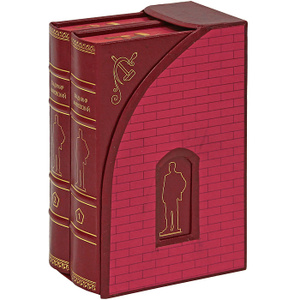 | Книга "Владимир Маяковский. Избранные произведения в 2 томах (эксклюзивное подарочное издание)" Владимир Маяковский - купить на OZON.ru книгу с быстрой доставкой по почте | |
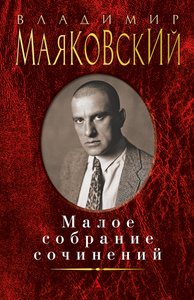 | Книга "Владимир Маяковский. Малое собрание сочинений" Владимир Маяковский - купить на OZON.ru книгу с быстрой доставкой по почте | 978-5-389-07528-3 |
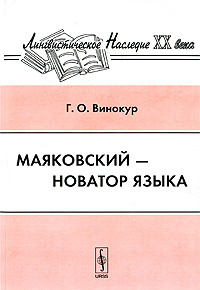 | Книга "Маяковский - новатор языка" Г. О. Винокур - купить на OZON.ru книгу с быстрой доставкой по почте | 978-5-397-00469-5 |
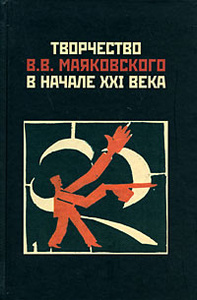 | Книга "Творчество В. В. Маяковского в начале XXI века" - купить на OZON.ru книгу с быстрой доставкой по почте | 978-5-9208-0294-1 |
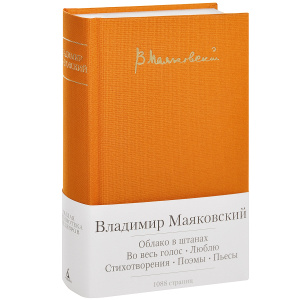 | Книга "Облако в штанах. Во весь голос. Люблю. Стихотворения. Поэмы. Пьесы" В. Маяковский - купить на OZON.ru книгу с быстрой доставкой по почте | 978-5-389-07157-5 |
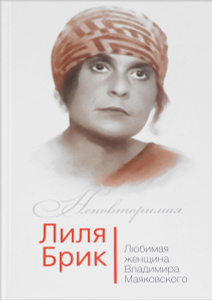 | Книга "Лиля Брик. Любимая женщина Владимира Маяковского" Владимир Дядичев - купить на OZON.ru книгу с быстрой доставкой по почте | 978-5-906880-05-5 |
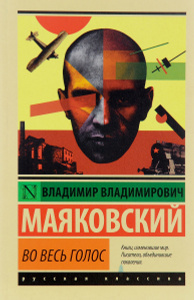 | Книга "Во весь голос" В. В. Маяковский - купить на OZON.ru книгу с быстрой доставкой по почте | 978-5-17-099269-0 |
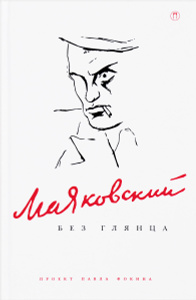 | Книга "Маяковский без глянца" - купить на OZON.ru книгу с быстрой доставкой по почте | 978-5-521-00030-2 |
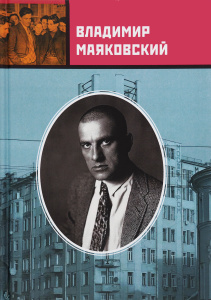 | Книга "Владимир Маяковский. Стихотворения, поэмы, пьесы" Владимир Маяковский - купить на OZON.ru книгу с быстрой доставкой по почте | 978-5-519-49475-5 |
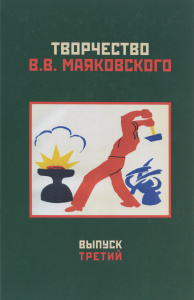 | Книга "Творчество В. В. Маяковского. Выпуск 3. Текст и биография. Слово и изображение Уцененный товар (№1)" - купить на OZON.ru книгу с быстрой доставкой по почте | 978-5-9208-0472-3 |
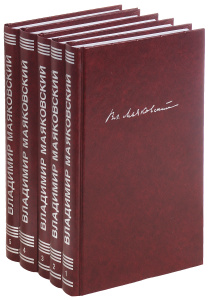 | Книга "Вл. Маяковский. Собрание сочинений в 5 томах (комплект из 5 книг)" Вл. Маяковский - купить на OZON.ru книгу с быстрой доставкой по почте | 978-5-4224-1056-9 |
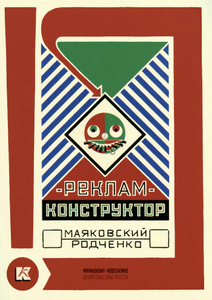 | Книга "Реклам-конструктор (набор из 22 открыток) " В. Маяковский, А. Родченко - купить на OZON.ru книгу с быстрой доставкой по почте | |
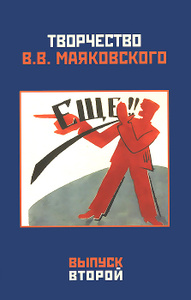 | Книга "Творчество В. В. Маяковского. Выпуск 2. Проблемы текстологии и биографии" - купить на OZON.ru книгу с быстрой доставкой по почте | 978-5-9208-0437-2 |
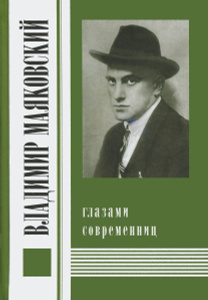 | Книга "Владимир Маяковский глазами современниц" - купить на OZON.ru книгу с быстрой доставкой по почте | 978-5-94668-155-1 |
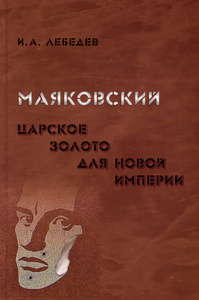 | Книга "Маяковский. Царское золото для новой империи" И. А. Лебедев - купить на OZON.ru книгу с быстрой доставкой по почте | 978-5-905988-26-4 |


















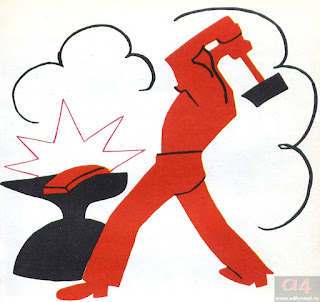





















Комментариев нет:
Отправить комментарий